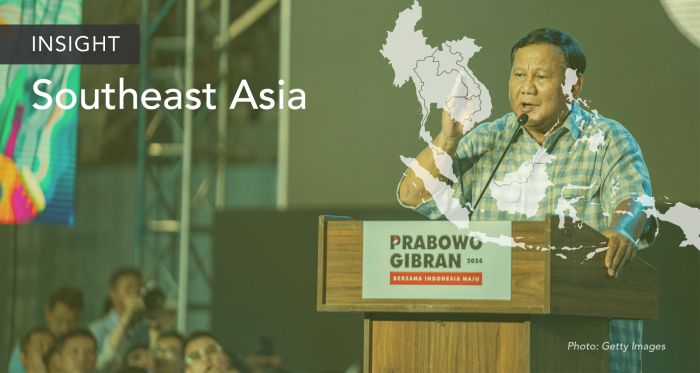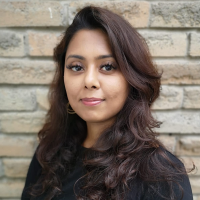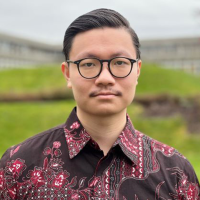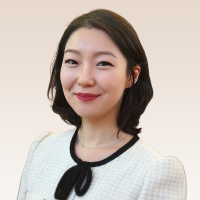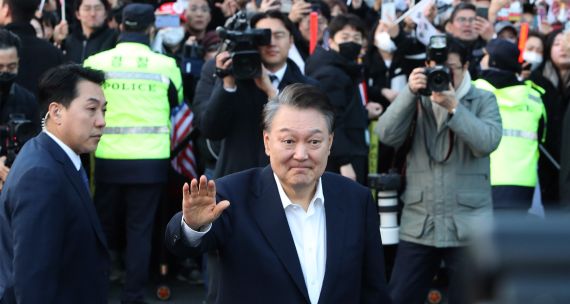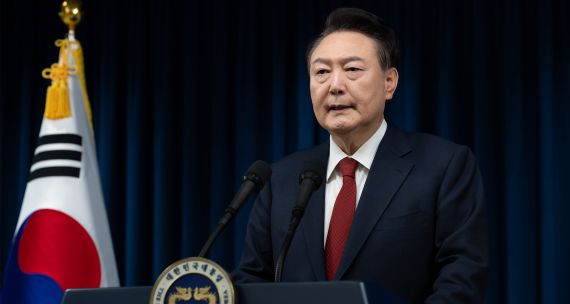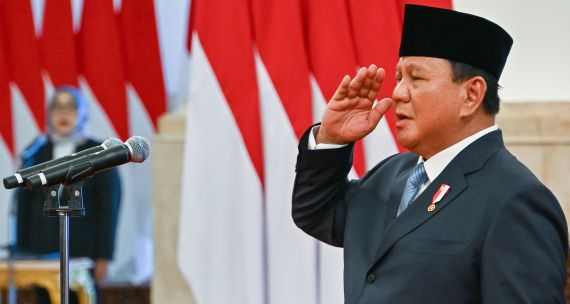The Takeaway
Early results from Indonesia’s February 14 presidential election point to a win for Defence Minister Prabowo Subianto. As of February 20, of the 71.4 per cent of votes counted, Prabowo led with 58 per cent, putting him well ahead of his contenders. The official tally is not expected until March 20 at the latest, and the new president will take office in October. A Prabowo win would reassure many stakeholders, as he has pledged to maintain many of the policies of the term-limited outgoing president, Joko Widodo (Jokowi). However, some Indonesians are unnerved by Prabowo’s links to historical human rights abuses.
In Brief
- The 72-year-old Prabowo, a former army lieutenant general, was unsuccessful in his first two runs for the presidency in 2014 and 2019, both times against Jokowi. In 2019, Jokowi appointed him to be his defence minister.
- Prabowo received Jokowi’s implicit endorsement for his recent presidential campaign and chose Jokowi’s oldest son, Gibran Rakabuming Raka, as his vice-presidential running mate.
- Prabowo is expected to strengthen Indonesia’s role within the Association of Southeast Asian Nations (ASEAN) by playing a leading role within the organization. This is in contrast to the Jokowi presidency, which focused more on domestic policy.
Implications
Prabowo’s win renews concerns about his past involvement in human rights abuses. Prabowo faces intense scrutiny over his alleged embroilment in human rights violations during the regime of the former dictator and Prabowo’s once father-in-law, Suharto, from 1967-98. During Indonesia’s occupation of Timor-Leste (1975-99), Prabowo was implicated in the 1983 Kraras massacre of more than 300 Timorese civilians. In 1996, he was reportedly involved in the killing of civilians in Irian Jaya (Highland Papua) during the Mapeduma hostage crisis. Between 1997-98, Prabowo was also accused of ordering the kidnapping of several pro-democracy student activists, something he publicly admitted to during his 2014 and 2024 presidential campaigns. He was banned from entering the U.S. in 1998 and was unofficially blacklisted by the Australian government. Those bans were lifted once he became defence minister.
Prabowo has tried to remake his image, branding himself as a relatable politician, and is frequently pictured stroking his beloved cat or showcasing his dance moves in videos shared on social media.
Critics are questioning judicial independence in Indonesia following a ruling benefiting Prabowo’s vice-presidential running mate, Gibran. Gibran’s path to the vice presidency was not without controversy. The 36-year-old was previously prohibited from running as vice president because he did not meet the minimum age requirement of 40 years. However, a 2023 constitutional court ruled that an exception be made for presidential and vice-presidential candidates who had previously held public office. The ruling cleared the way for Gibran, the mayor of Surakarta, to circumvent the age requirement. Some decried the move as an obvious breach of judicial independence, and even some of Jokowi’s longtime supporters suggested that installing his son as vice president was a way for Jokowi to establish his own political dynasty.
What’s Next
- Foreign policy under Prabowo
Prabowo has announced his intentions of continuing Indonesia’s “Bebas-Aktif” (independent-active) foreign policy, whereby Indonesia maintains cordial relations with both the West, specifically the U.S., and China. Prabowo is expected to advance Indonesia’s security ties with the U.S.: as defence minister, he oversaw the purchase of American fighter jets and upgraded U.S.-Indonesia relations through a Comprehensive Strategic Partnership. Meanwhile, economic ties with China are expected to persist; Chinese investment is one of the biggest sources of funding for infrastructure development, which is crucial given Prabowo’s promise to continue infrastructure projects initiated by the Jokowi administration.
Of interest to foreign investors are his policies on nickel, a key component in electric vehicles. With about 21 million tonnes of nickel reserves, Indonesia is the world’s largest nickel producer. Prabowo and Gibran have pledged to advance Jokowi’s downstreaming policy, which aims to maximize the processing of nickel domestically to enhance its value.
- Canada-Indonesia bilateral ties
In 2022, two-way merchandise trade between Canada and Indonesia totalled C$6.24 billion, with Canadian merchandise exports into Indonesia reaching C$3.3 billion. That makes Indonesia Canada’s largest export destination in Southeast Asia. In 2021, the two countries jointly initiated talks on a Comprehensive Economic Partnership Agreement (CEPA) to strengthen bilateral trade and investment. The seventh round of negotiations is scheduled for March 2024.
Canadian-Indonesia relations are also expected to deepen as Canada expands its engagement with ASEAN. During the 10th ASEAN Defence Ministers’ Meeting Plus (ADMM-Plus) in Jakarta in December 2023, Prabowo, in his capacity as defence minister, mentioned the possibility of expanding the group’s membership in light of new guidelines granting observer status to Timor-Leste. Canada has long indicated its interest in joining the ADMM-Plus, which consists of ASEAN member states and Australia, China, India, Japan, Korea, New Zealand, Russia, and the U.S.
Prabowo’s impending win has already been recognized by Australia, India, China, and Russia. Prabowo’s early acceptance among major powers highlights Indonesia’s rising prominence and the growing need to establish ties with the nation.
• Produced by APF Canada’s Southeast Asia team: Hema Nadarajah, Program Manager; Alberto Iskandar, Analyst; and Sasha Lee, Analyst. Editor: Ted Fraser. Graphic Design: Chloe Fenemore.
